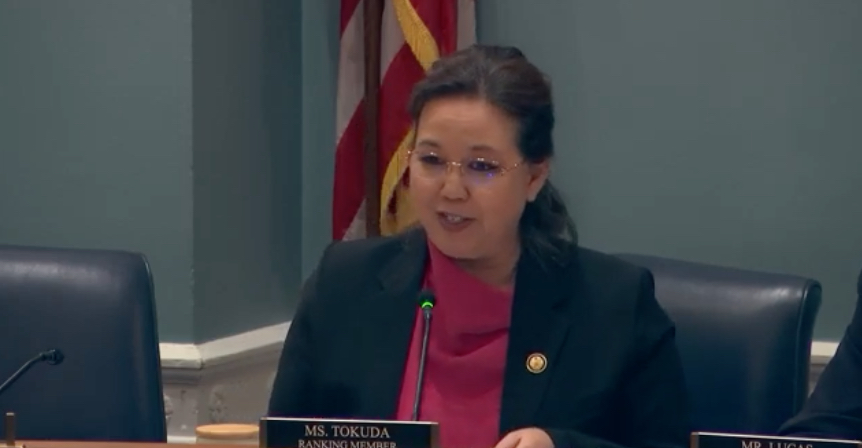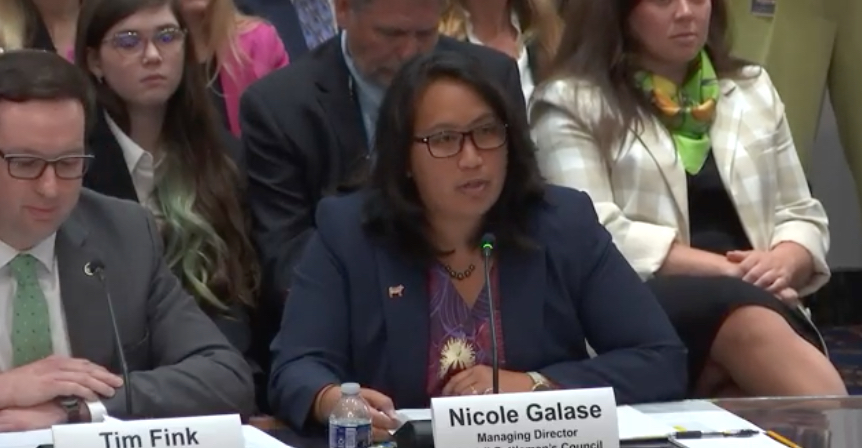
In her debut as ranking member of the House Agriculture Subcommittee on Conservation, Research, and Biotechnology, US Rep. Jill Tokuda joined Hawai?i Cattlemen’s Council Managing Director Nicole Galase Thursday in advocating for the nation’s food producers and conservation programs.
In her opening statement, Tokuda spoke to the environmental challenges facing farmers and ranchers.
“The weather isn’t what it used to be. No matter what you want to call it — climate change, extreme weather, shifting seasons — our producers are living it every day. Longer droughts, harder rains, heatwaves in April, frost in May — it’s getting harder to grow the food, fuel and fiber that this country relies on. And that’s not a partisan talking point. It’s a reality for farmers and ranchers across this country,” she said.
Tokuda called for a unified and practical approach to supporting the agriculture sector, moving beyond political divisions.
“And let me be clear: this is not about left or right,” she said. “It’s about forward. Whether you’re in red states, blue states, purple states or farm country, right in between, producers are not asking for politics. They’re asking for access, for flexibility, for conservation tools that make their land more resilient, their water more efficient, and their operations more secure — because their livelihoods, as you all know, depend on it, and so do our nation’s food supply.”
The hearing was a milestone for Tokuda because she was instrumental in bringing Galase to testify, making it the first time a Hawai?i expert has appeared before the subcommittee. Galase detailed the specific pressures on Hawai?i’s agricultural lands.
“Some of the biggest challenges and threats to our industry come from the loss or conversion of our natural resources,” Galase said. “In Hawai?i, like many other states, we face a decline in pasture lands. A decline in pasture inevitably leads to a decline in agricultural production, which weakens food security. Our goal is to keep grasslands green.”

She emphasized that for cattle producers, conservation is an economic necessity.
“Since our livelihood is made on the land, resource stewardship not only makes good environmental sense, it is economically fundamental,” Galase said. “Maintaining robust voluntary conservation programs must remain a top priority for both the US Department of Agriculture and this committee. Accomplishing this goal is impossible without the flexibility and attention to locally led decision-making. Cattle producers take pride in our efforts to improve the land and are always looking for partnership opportunities.”
Source: Maui Now
